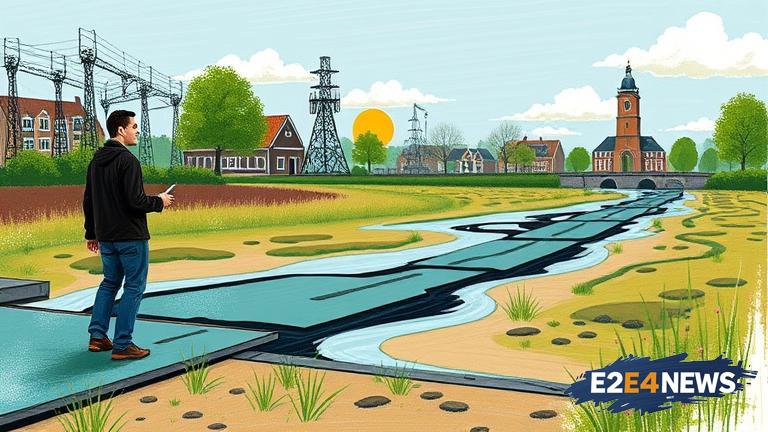The Dutch political party Volt has recently unveiled its draft election program, placing a significant emphasis on addressing climate change and introducing a universal basic income. This move reflects the party’s commitment to tackling some of the most pressing issues of our time. By prioritizing climate action, Volt aims to contribute to the global effort to reduce carbon emissions and mitigate the effects of climate change. The party’s draft program outlines a comprehensive approach to achieving this goal, including investments in renewable energy, sustainable infrastructure, and green technologies. Furthermore, Volt’s proposal for a universal basic income is designed to ensure that every citizen has a safety net, regardless of their employment status. This initiative is intended to reduce poverty, inequality, and social exclusion, while also promoting economic security and freedom. The party believes that a universal basic income will enable people to pursue meaningful work and contribute to their communities without fear of financial instability. In addition to these key policies, Volt’s draft program addresses a range of other important issues, including education, healthcare, and social justice. The party is committed to creating a more equitable and sustainable society, where everyone has access to quality education, healthcare, and opportunities for personal growth. Volt’s draft program also emphasizes the importance of European cooperation and international solidarity in addressing global challenges. By working together with other countries and organizations, the party believes that it is possible to achieve greater progress and make a more significant impact. The release of Volt’s draft election program has generated significant interest and debate in the Netherlands, with many people welcoming the party’s bold and innovative approach to policy-making. As the country prepares for upcoming elections, Volt’s program is likely to be a major talking point, with many voters eager to learn more about the party’s vision and proposals. The party’s commitment to climate action and social justice is likely to resonate with many young people and progressive voters, who are increasingly concerned about the future of the planet and the need for radical change. However, some critics have expressed skepticism about the feasibility and cost of implementing a universal basic income, and the party will need to address these concerns and provide more detailed explanations of its proposals. Despite these challenges, Volt’s draft program represents an important contribution to the debate about the future of the Netherlands and the kind of society that people want to build. The party’s emphasis on climate action, social justice, and human well-being reflects a growing recognition of the need for a more sustainable and equitable world. As the elections approach, it will be interesting to see how Volt’s program is received by voters and how the party’s policies are debated and discussed in the media and in public discourse. The party’s success will depend on its ability to communicate its vision and policies effectively, and to build a broad coalition of support among voters, civil society organizations, and other stakeholders. In conclusion, Volt’s draft election program represents a significant development in Dutch politics, and its emphasis on climate action and universal basic income is likely to have a major impact on the debate about the country’s future. The party’s commitment to creating a more sustainable and equitable society is likely to resonate with many voters, and its proposals have the potential to make a real difference in people’s lives.
